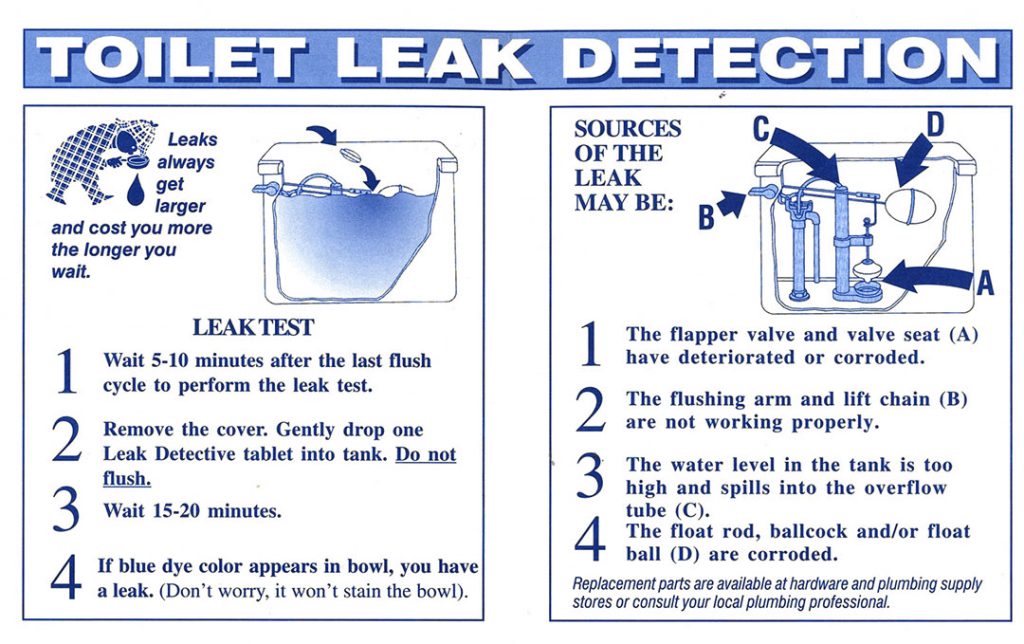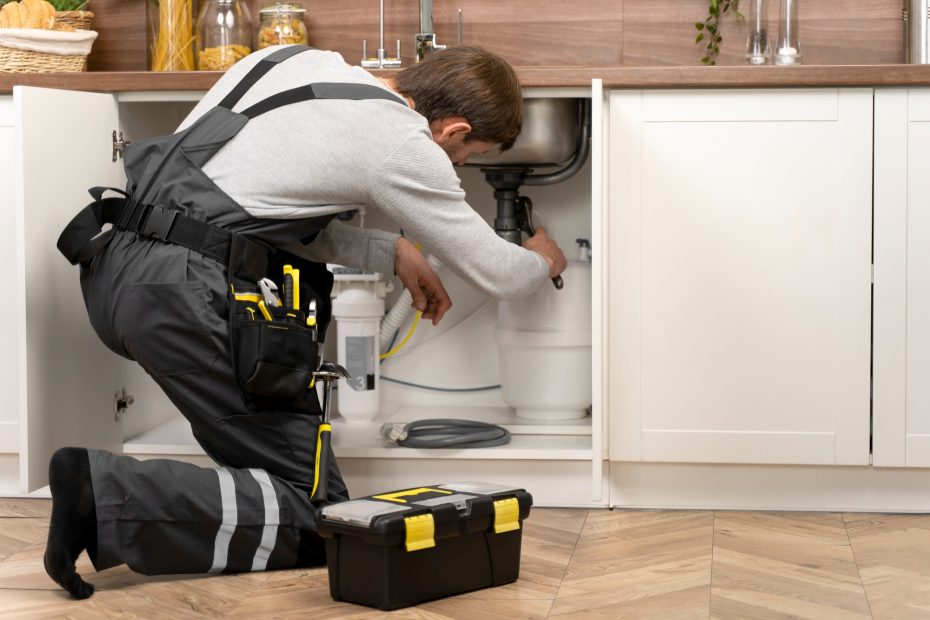As we enter a moderate drought stage, residents of the City of Morden need to be mindful of their water consumption and take steps to conserve water. One effective way to reduce water waste is by promptly repairing leaks in your home. Even small leaks can add up to thousands of gallons of water waste annually, not to mention the wasted energy if the leak is on the hot water side. By not addressing leaks, you not only waste water and energy but also expose your home and personal belongings to potential water damage. If you repair leaks you are not only being environmentally responsible but you are also saving money on your water bill.
Water Leak Detection
Water leak detection is one of the easiest ways to reduce water waste. Slow drips of water can add up quickly, and even the smallest leaks can result in thousands of gallons of wasted water each year. If the leak is on the hot water side, you are also paying for wasted energy. Identifying and repairing water leaks is a great way to reduce the amount of water wasted in your home.
To detect leaks, you can utilize the triangle leak detection hand on your water meter. Simply turn off all water fixtures in your house and locate the water meter. Watch the low-flow indicator, and if the red triangle is moving counterclockwise, you have a leak. This simple test can help you identify leaks and take prompt action to repair them.
Leaky Faucets
Leaky faucets are a common source of water waste in households. Even the smallest amount of dripping or running taps can waste significant amounts of water over time. To visualize the impact of leaks, take a look at the following examples:
- Drip: A 1mm stream wastes 100 litres of water in 24 hours, or 3,000 litres in one month. That’s 750 gallons and $5.55 per month.
- Dribble: A 1.5mm stream wastes 400 litres in 24 hours, or 12,000 litres in one month. That’s 3,000 gallons and $22.20 per month.
- Drool: A 3mm stream wastes 1,600 litres in 24 hours, or 48,000 litres in one month. That’s 12,000 gallons and $88.80 per month.
As you can see, even a small leak can have a significant impact on both your water consumption and your wallet. Make sure to have any leaks repaired as soon as possible to minimize water waste.
Toilet Leak Detection
Toilet leaks can range from small to large and can cause a significant increase in your water consumption. Many toilet leaks are silent, making them difficult to detect. However, if you hear the sound of running water, a faint hissing, or trickling in your toilet, it may be a sign of a leak. Toilet leaks can wash away thousands of litres of water, doubling or even tripling your overall water consumption in a single month.
To check for toilet leaks, you can use dye tablets available at the Civic Centre. Simply drop a dye tablet into the toilet tank and wait for a few minutes. If the water in the bowl changes colour without flushing, you have a leak that needs to be repaired. Regularly checking your toilet for leaks and making prompt repairs can help you save both water and money.

Pipe Leak Detection
Detecting pipe leaks can be a bit trickier, as most pipes are concealed in walls or under the foundation of your home or office. Look for symptoms of a leak such as discoloured drywall, ceiling tiles, or carpet. If you suspect a pipe leak, it is best to call a professional plumber to inspect and repair the issue.
Irrigation or Sprinkler System Leak Detection
Similar to detecting internal pipe leaks, spotting leaks in irrigation or sprinkler systems requires you to look for signs of a leak. If you have a system installed, it’s helpful to have a layout of the system on hand. Walking the system and inspecting for wet spots or pooling water can help you identify leaks. Additionally, regularly checking your water bill for any unexplained increases in water usage can indicate a potential system leak.
Monitoring Water Use
Monitoring your water use is an important aspect of water conservation. Comparing your current water use to past use can help you identify any changes or potential leaks. You can use your water meter to monitor your daily consumption and detect leaks in your plumbing. By recording your meter reading at a set time of the day, you can calculate your water consumption for those 24 hours and identify any anomalies or significant changes.
Additionally, it’s essential to be aware of the various facts about water leaks and water usage. For example:
- A leak of one drop per second wastes 10,000 litres of water per year.
- Fixing a silently leaking toilet can save you up to 500 gallons of water per day.
- Installing high-efficiency plumbing fixtures and appliances can help a typical family of four reduce indoor water use by one-third.
- Heating water accounts for 19% of home energy use.
These facts highlight the importance of addressing leaks and implementing water-efficient practices in your daily routine.
What You Can Do?
As residents of the City of Morden, you have the power to make a difference and conserve water. Here are some actionable steps you can take to reduce your water usage:
In the Bathroom:
- Do not use the toilet as a wastebasket.
- Do not let the faucet run while shaving or brushing your teeth.
- Insulate pipes to get hot water faster and reduce water waste.
- Install water-saving showerheads or flow restrictions.
- Take short showers instead of tub baths.
- Consider alternative uses for water before pouring it down the drain.
Outdoors:
- Water your lawn only when needed.
- Deep-soak your lawn to promote deep root systems.
- Sweep driveways, patios, and walks instead of hosing them down.
- Wash your car from a bucket or use a commercial car wash that recycles water.
- Control the flow of water when using a hose with an automatic shutoff nozzle.
- Install rainwater collection mechanisms for plants and use dehumidifier water for watering.
- Use a swimming pool cover to reduce evaporation by 90%.
In the Kitchen:
- Operate the dishwasher only when full.
- Use steamers or minimal water when cooking.
- Thaw frozen foods in the refrigerator.
- Keep a container of water in the fridge for cold drinks.
- Clean vegetables in a sink or bowl of water, then rinse quickly.
- Use a pan of hot water for rinsing dishes instead of running the tap.
In the Laundry:
- Use the appropriate water level or load size on the washing machine.
- Wash full loads whenever possible.
Repair Leaks Right Away!
Remember, leaks don’t go away on their own; they only worsen with time. Addressing leaks promptly is crucial to prevent property damage and expensive repairs. If you’re going away for an extended period, consider shutting off your main water line to reduce the likelihood of damage caused by leaks during your absence.
By taking action and consistently monitoring and repairing leaks, you can make a significant impact on conserving water, reducing your environmental footprint, and saving money on your monthly water bill. Let’s work together to make a difference in our community.
